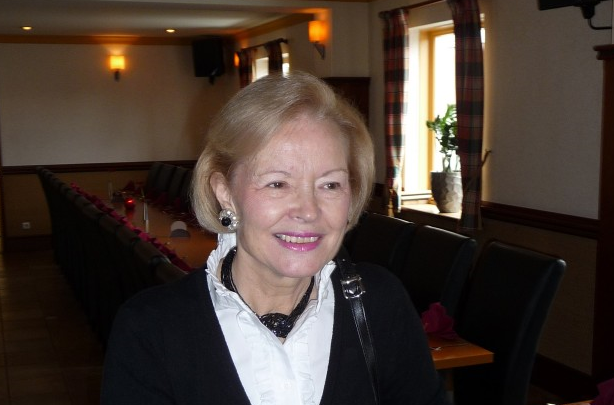In April 2012, Godelieva De Troyer died from lethal injection in Belgium after she asked to be put to death for “untreatable depression.” Her son, Tom Mortier, didn’t find out until the next day when the morgue called him to come pick up her body. He said, “I was completely shocked and traumatized.”
As LifeNews previously reported, Mortier explained that he had been disconnected from his family and didn’t know that his mother was so depressed. He said that after his mother’s last relationship ended, she broke off contact with him and his children because she was worried that he was the same as his father who committed suicide when he was 5 years old. Unfortunately, in seeking euthanasia his mother asked doctors to not contact her children.
Now Mortier is taking his mother’s case to the European Court of Human Rights and Alliance Defending Freedom is assisting him.
ADF International had filed an application, Mortier v. Belgium, with the European Court of Human Rights in September of last year on behalf of the son, Tom Mortier, to challenge Belgium’s laws that allow doctor-prescribed death, but the court wants the Belgian criminal court, which previously claimed it lost the files to the case, to address the issue first. The European Court invited Mortier to apply to it once again if the Belgian court does not satisfactorily resolve the matter.
“No one should support any doctor who thinks the right prescription for depression is death,” said ADF International Legal Counsel Robert Clarke. “We are pleased that Tom will be able to pursue justice in the Belgian court. We trust the court will take his case seriously and that the case will be properly managed and progressed quickly so that justice will be done.”
Click here to sign up for daily pro-life news alerts from LifeNews.com
Oncologist Wim Distelmans killed Godelieva De Troyer, a Belgium citizen who was not terminally ill, because of “untreatable depression” in April 2012 after receiving consent from three other physicians who had no previous material involvement with her care. De Troyer’s doctor of more than 20 years had denied her request to be euthanized in September 2011, but after a 2,500 EUR donation to Life End Information Forum, an organization that Distelmans co-founded, he carried out her request to die because of the depression. The donation gives rise to an apparent conflict of interest.
No one contacted Mortier before his mother’s death even though, Mortier says, her depression was not only largely the result of a break-up with a man, but also due to her feelings of distance from her family.
Distelmans is not a psychiatrist, and none of the doctors involved had any enduring doctor-patient relationship with De Troyer. In addition, the commission the Belgian government established to investigate any failure to observe the euthanasia law has been led, since its creation, by Distelmans. Despite evidence of widespread abuse of the law, the commission has never referred a case to the prosecutor.
“People suffering from depression need compassion, love, and sound treatment, not a prescription for death,” said ADF International Senior Counsel Roger Kiska. “The state has a duty to put the necessary safeguards in place so that suffering patients receive adequate care from doctors and an opportunity to consult with family members.”
Last year, the European Court of Human Rights threw out a lawsuit that challenged Switzerland’s denial of suicide drugs to a woman who was not suffering from any fatal disease. The court dismissed the case, Gross v. Switzerland, when it discovered the woman had committed suicide three years earlier. In an apparent attempt to keep her lawsuit alive, no one had informed the court of her death or how she died. In 2011, in Haas v. Switzerland, the European Court unanimously rejected the claim that Switzerland had an obligation to assist individuals in committing suicide.
According to the Telegraph, Moriter also says that at least two of the experts who assessed her did not agree that her depressive illness was beyond treatment.
He said, “If you made a movie about what’s happening, people just wouldn’t believe it, but in Belgium, it’s reality. You should not give a physician the right, or the legal possibility, to give someone a lethal injection, and definitely not to people with mental illnesses or older people tired of life. These are people who should be helped.”








